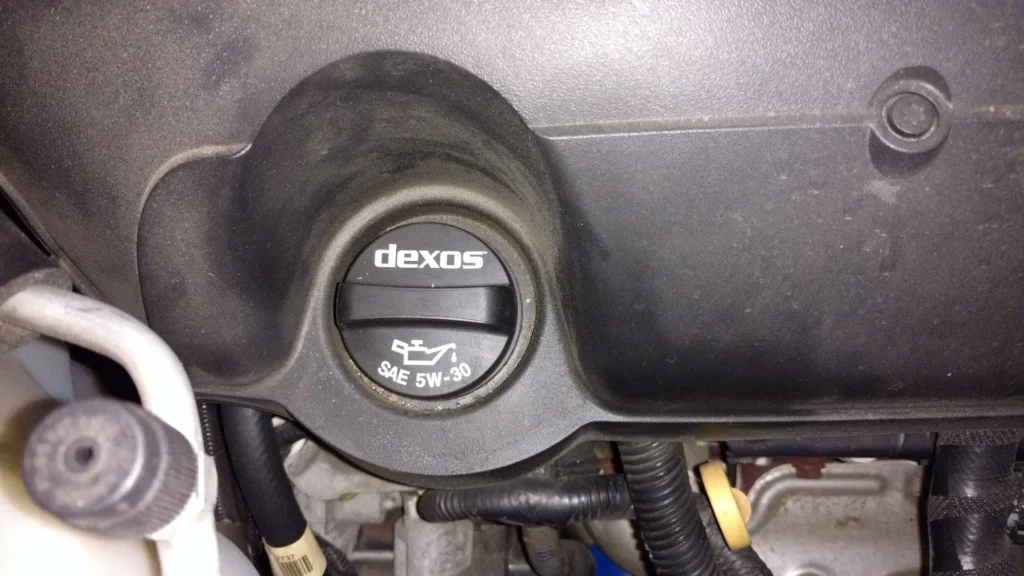What is Engine Oil?
Engine oil is the lifeblood of your vehicle’s engine, yet many car owners pay little attention to this crucial fluid until problems arise. Using the wrong type of oil can lead to decreased engine performance, reduced fuel efficiency, and in severe cases, complete engine failure. This comprehensive guide will help you understand everything you need to know about engine oil, from decoding those mysterious numbers on oil containers to choosing the right type for your vehicle.

Understanding Oil Grades: More Than Just Numbers
When you see designations like 5W-30 or 10W-40 on oil containers, you’re looking at the oil’s viscosity rating. Viscosity refers to the oil’s resistance to flow, and these numbers tell us how the oil performs in different temperature conditions. The “W” stands for winter, and the number before it indicates how well the oil flows in cold temperatures. The lower this number, the better the oil performs in cold weather.
The number after the hyphen represents the oil’s viscosity at high temperatures (100°C/212°F). A higher second number means the oil maintains better thickness at high temperatures, providing better protection for engines operating under heavy loads or in hot weather.
Temperature plays a crucial role in oil performance. In cold weather, oil thickens, making it harder for the engine to turn over. Conversely, hot temperatures thin the oil, potentially reducing its protective capabilities. Modern multi-grade oils are designed to perform well across a wide temperature range, but choosing the right grade for your specific conditions remains important.
Finding Your Car’s Oil Requirements: The Right Oil for Your Engine
Determining the correct oil for your vehicle isn’t guesswork – manufacturers provide specific recommendations based on extensive testing. Here’s how to find this information:
- Owner’s Manual: Your first stop should be your vehicle’s owner’s manual, which lists the recommended oil grade and type.
- Oil Cap Markings: Many vehicles have the recommended oil grade printed directly on the oil fill cap.
- VIN Lookup: Your Vehicle Identification Number can be used to look up specifications through manufacturer databases or reliable automotive websites.


Common Oil Types: Understanding Your Options
Conventional Oil
Traditional mineral-based oil remains a popular choice for many drivers. It’s the most economical option and works well for drivers with simple needs and regular driving habits. However, it offers less protection against extreme temperatures and requires more frequent changes.
Synthetic Blend
This mixture of conventional and synthetic oils offers a middle-ground solution. It provides better protection than conventional oil while keeping costs lower than full synthetic. It’s particularly popular in SUVs and light trucks.
Full Synthetic
The premium choice in engine oils, full synthetic offers superior protection against wear, higher performance in extreme temperatures, and longer service intervals. While more expensive initially, synthetic oil often proves cost-effective through extended change intervals and better engine protection.
High-Mileage Oil
Specifically formulated for vehicles with over 75,000 miles, high-mileage oils contain additives that help reduce oil consumption, minimize leaks, and address age-related engine wear.
Factors Influencing Oil Choice: Making an Informed Decision
Several factors should influence your oil choice:
Climate Considerations
- Cold climates require lower viscosity oils for easier cold starts
- Hot climates need higher viscosity oils to maintain protection
- Extreme temperature variations may necessitate synthetic oils
Vehicle Age and Mileage
- Newer engines often require specific synthetic oils
- High-mileage vehicles may benefit from specialized formulations
- Older engines might perform better with conventional oils
Driving Habits
- Frequent short trips require more frequent oil changes
- Highway driving allows for longer oil change intervals
- Heavy loads or towing may require higher viscosity oils
Manufacturer Recommendations
Always consider manufacturer specifications first, as ignoring them could void your warranty and potentially damage your engine.
When to Consider Switching Oil Types

Certain situations might warrant changing your oil type:
- High-Mileage Situations
- Switch to high-mileage oil after 75,000 miles
- Consider synthetic oil to reduce engine wear
- Monitor oil consumption more closely
- Performance Needs
- Racing or high-performance driving requires synthetic oil
- Towing or hauling heavy loads may need higher viscosity
- Extreme weather conditions might necessitate synthetic oils
Common Oil Myths Debunked
Let’s address some persistent myths about engine oil:
Myth 1: “You can’t switch between synthetic and conventional oil”
FALSE: Modern oils are compatible, and switching won’t harm your engine. However, you’ll lose the benefits of synthetic oil if you switch back to conventional.
Myth 2: “Synthetic oil causes leaks”
FALSE: Synthetic oil doesn’t cause leaks. It may find existing leaks due to its superior flow characteristics, but it doesn’t create them.
Myth 3: “Dark oil always needs changing”
FALSE: Oil darkens quickly from normal engine operation. Color alone isn’t a reliable indicator of when oil needs changing. Follow your manufacturer’s recommended change intervals.
Conclusion: Making the Right Choice for Your Engine
Choosing the right engine oil is crucial for maintaining your vehicle’s performance and longevity. Consider your vehicle’s specifications, driving conditions, and specific needs when selecting oil. Remember these key points:
- Always follow manufacturer recommendations for oil grade and type
- Consider synthetic oil for better protection and longer service intervals
- Monitor oil levels regularly and change oil according to recommended intervals
- Consult a professional if you’re unsure about your oil choice or notice unusual engine behavior
When in doubt, consult with a certified mechanic who can provide specific recommendations based on your vehicle’s condition and your driving habits. Regular oil changes with the right type of oil are one of the most cost-effective ways to protect your engine and extend your vehicle’s life.
Remember: the small additional cost of using the right oil is insignificant compared to the potential expense of engine repairs or replacement due to using the wrong oil.